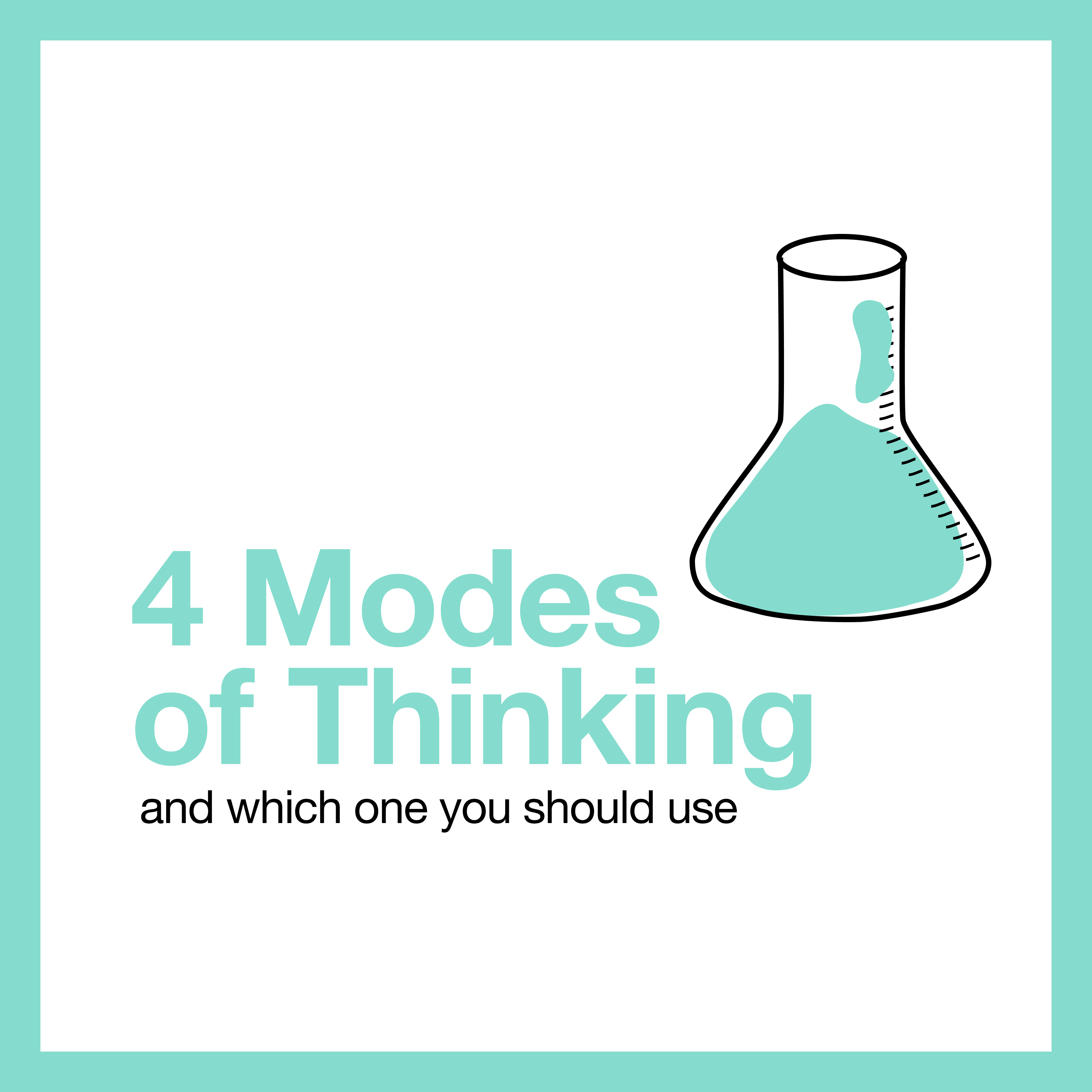A Phillips' screwdriver is no use for a flathead screw; different jobs require different tools. Adam Grant, a Wharton professor and author, argues that the same goes for decision making in our daily life. In his new book Think Again, Grant describes four modes of thinking for analytical thinking and problem solving.
The 4 Modes of Thinking
When it comes to critical thinking and decision making, Grant believes we embody different modes of thinking: Preacher, Prosecutor, and Politician. These modes were outlined by a Wharton colleague, Phillip Tetlock. Grant adds a fourth thinking style to the mix, the Scientist.
Preacher: Grant explains that "when we're in preacher mode, we're convinced we're right." We default to this thinking style when we feel our beliefs are endangered. We fiercely defend our principles and try to persuade others to our way of thinking.
Prosecutor: In the prosecutor mode, Grant says that we're focused on trying to prove someone else wrong. We tend to think like this when we perceive faults in others' line of thinking.
Politician: When we seek approval from others, we turn into the politician.
Grant makes the case that we are too often concerned with preaching that we're right, proving others wrong, or trying to gain the approval of others. His counterproposal is that we spend more time thinking like a scientist.
Scientist: The Scientist favors humility and curiosity. They treat opinions as hypotheses that need confirmation or rebuttal. Creative problems require creative thinking to solve and a touch of intellectual humility allows for for that openness. This thinking style views changing your mind as a sign of progress rather than weakness-it requires critical thinking and the ability to acknowledge your mistakes.
Jeff Bezos is known for hiring people who change their opinions often and can admit they are wrong. He views it as the number 1 sign of high intelligence. Bezos observed that smart people tend to reconsider problems they'd thought they'd solved and revise their understanding.
Thinking like a scientist isn't just a mindfulness exercise in managing relationships and personalities, it can have big picture ramifications that hugely impact performance. Grant mentions an Italian study that found that entrepreneurs using a Scientist thought process brought in 40 times more revenue than a control group which had not been taught that. Studies have also shown that those who demonstrate intellectual humility make markedly better choices.
Tips for thinking like a Scientist
There's a time and place for the first three modes of thinking, but spending too much time as either Preacher, Prosecutor, or Politician can leave us vulnerable to our cognitive biases and predispose us against changing our minds, even when presented with new information.
If you're one for analytical thinking, imagine what new information would be able to change your mind on a given topic. Surround yourself with people who are willing to challenge your thinking-this can be helpful in problem solving situations and for your overall emotional and mental health. Hal Gregersen, an executive director of the MIT Leadership Center, takes that one step further and encourages aspiring leaders to find something they're wrong in your daily life rather than what they're getting right. If you're trying to get smarter, you should focus on how you can evolve your understanding. Gregersen explains that being obsessed with right-ness only reinforces what you already know.
Intellectual humility seems to go against our human nature but cultivating it can be extremely valuable. Thinking more like a Scientist could be the key to getting past your toughest problems, but who knows? We could be wrong.
